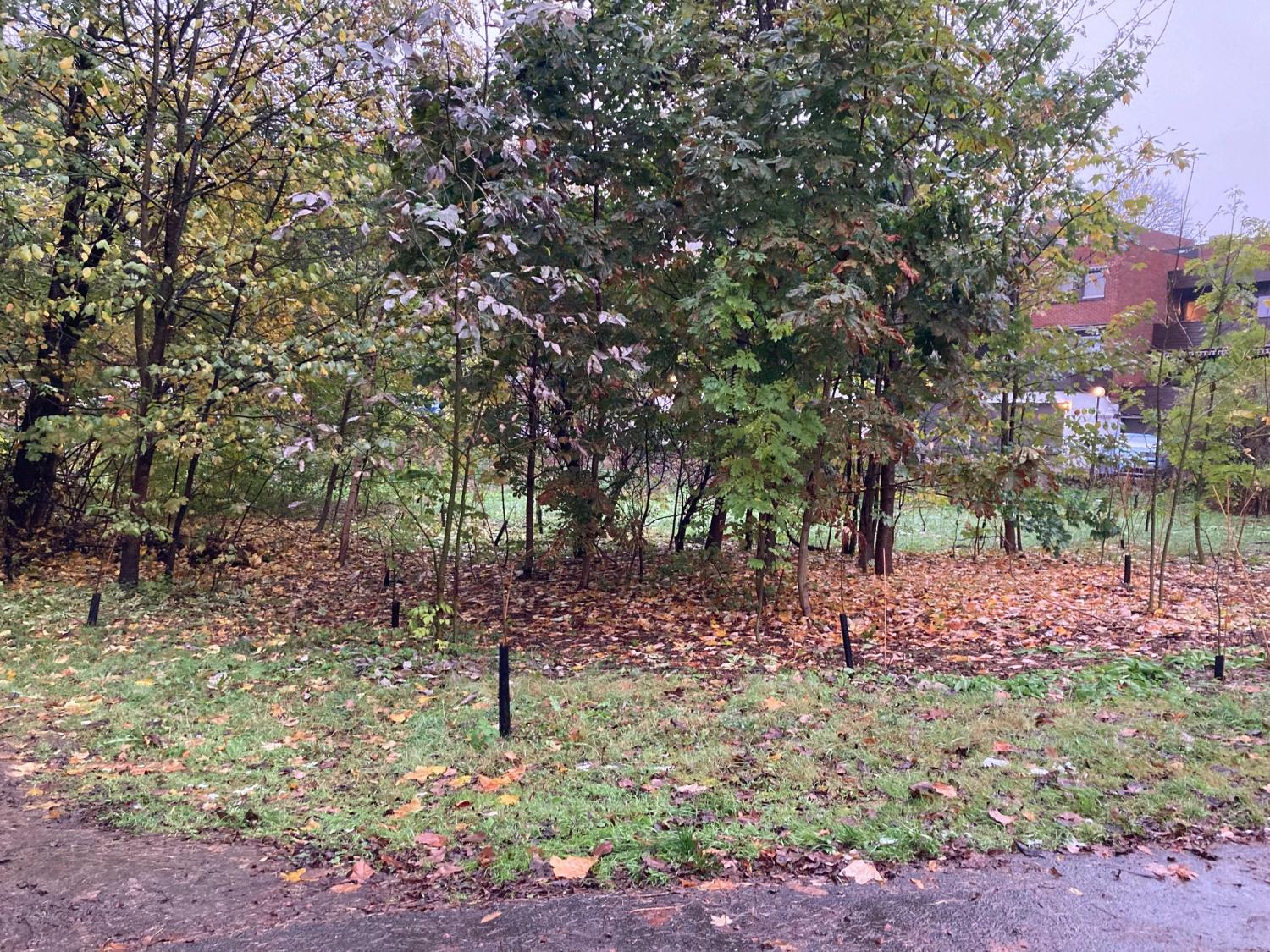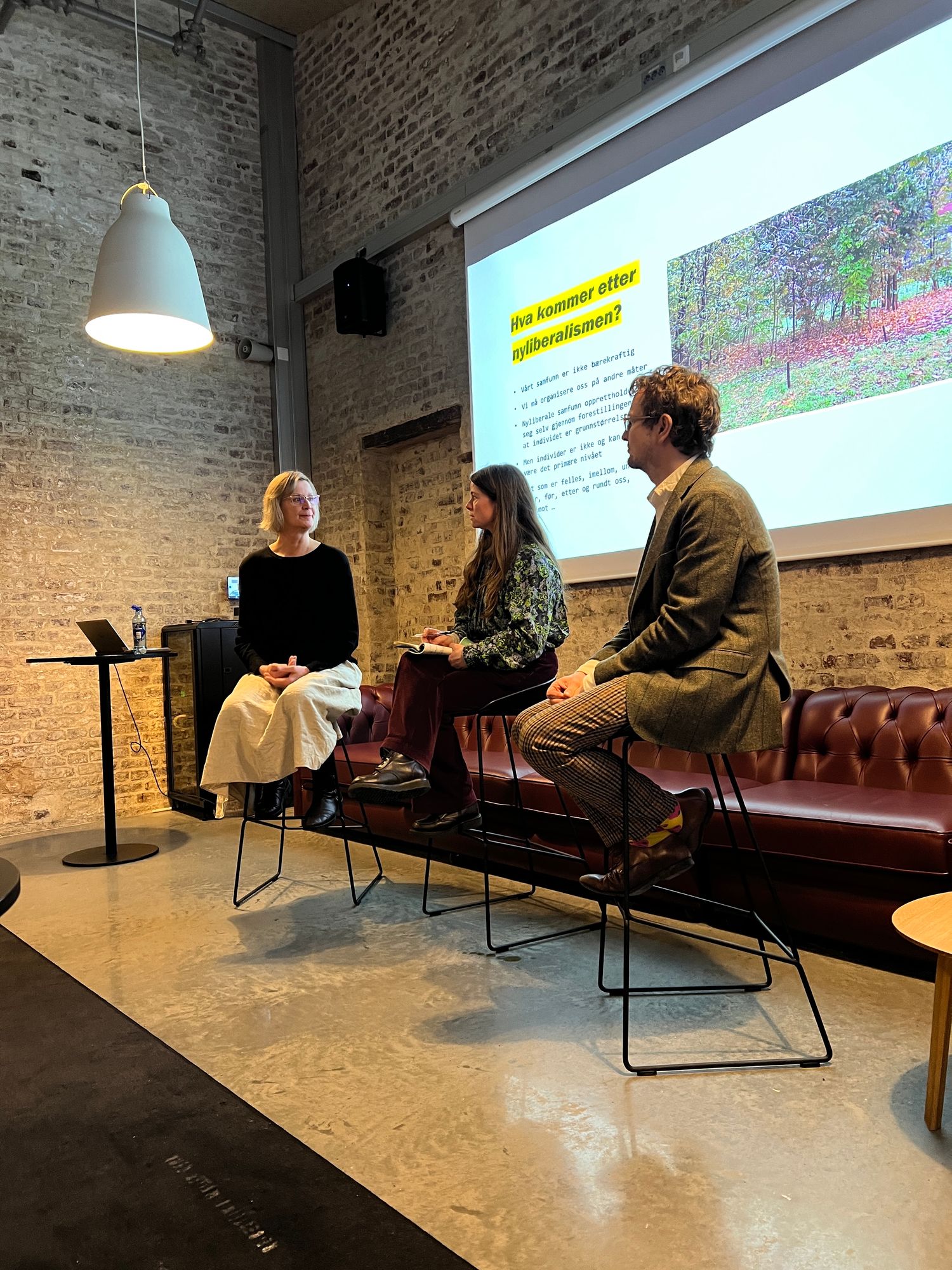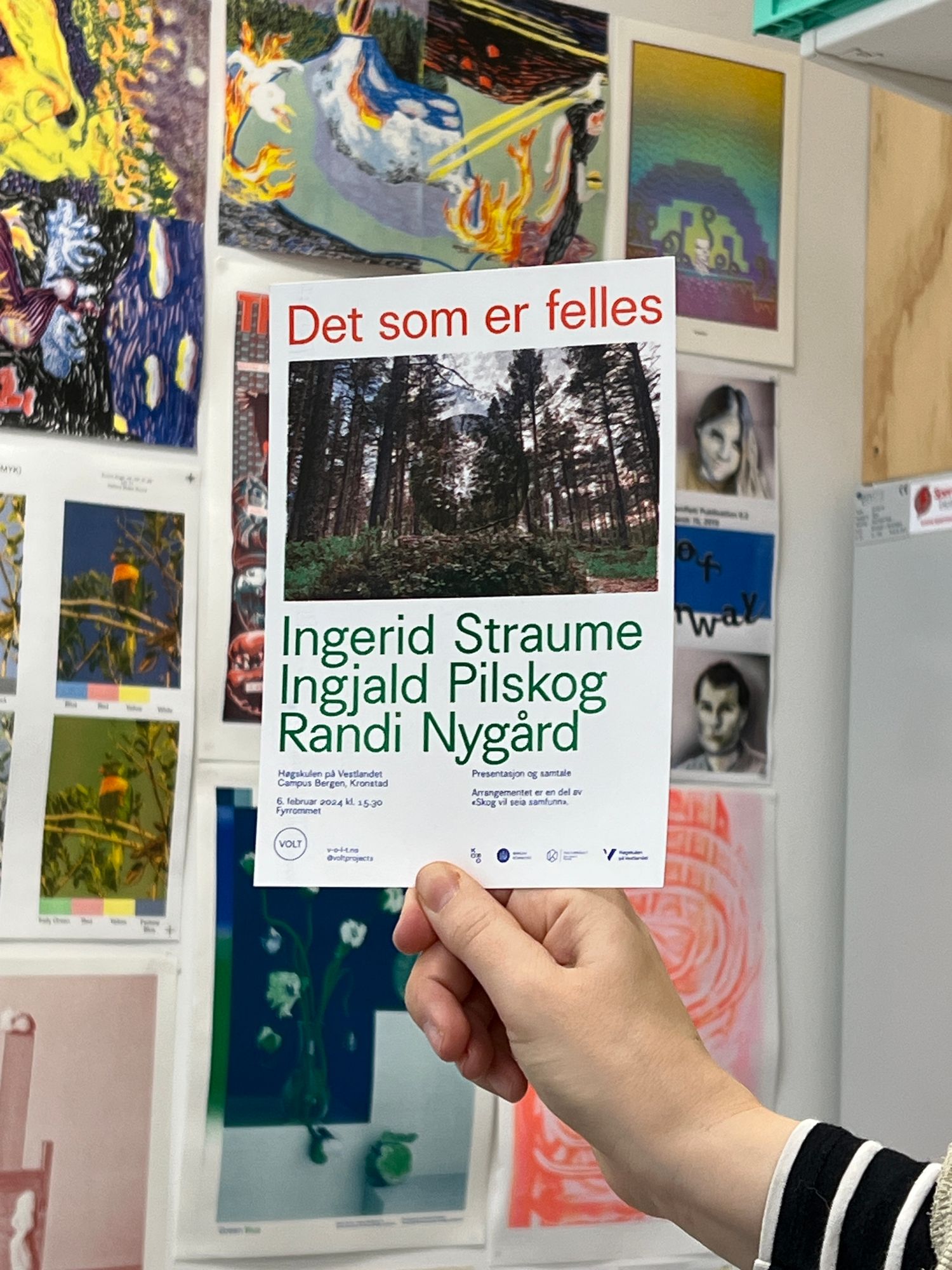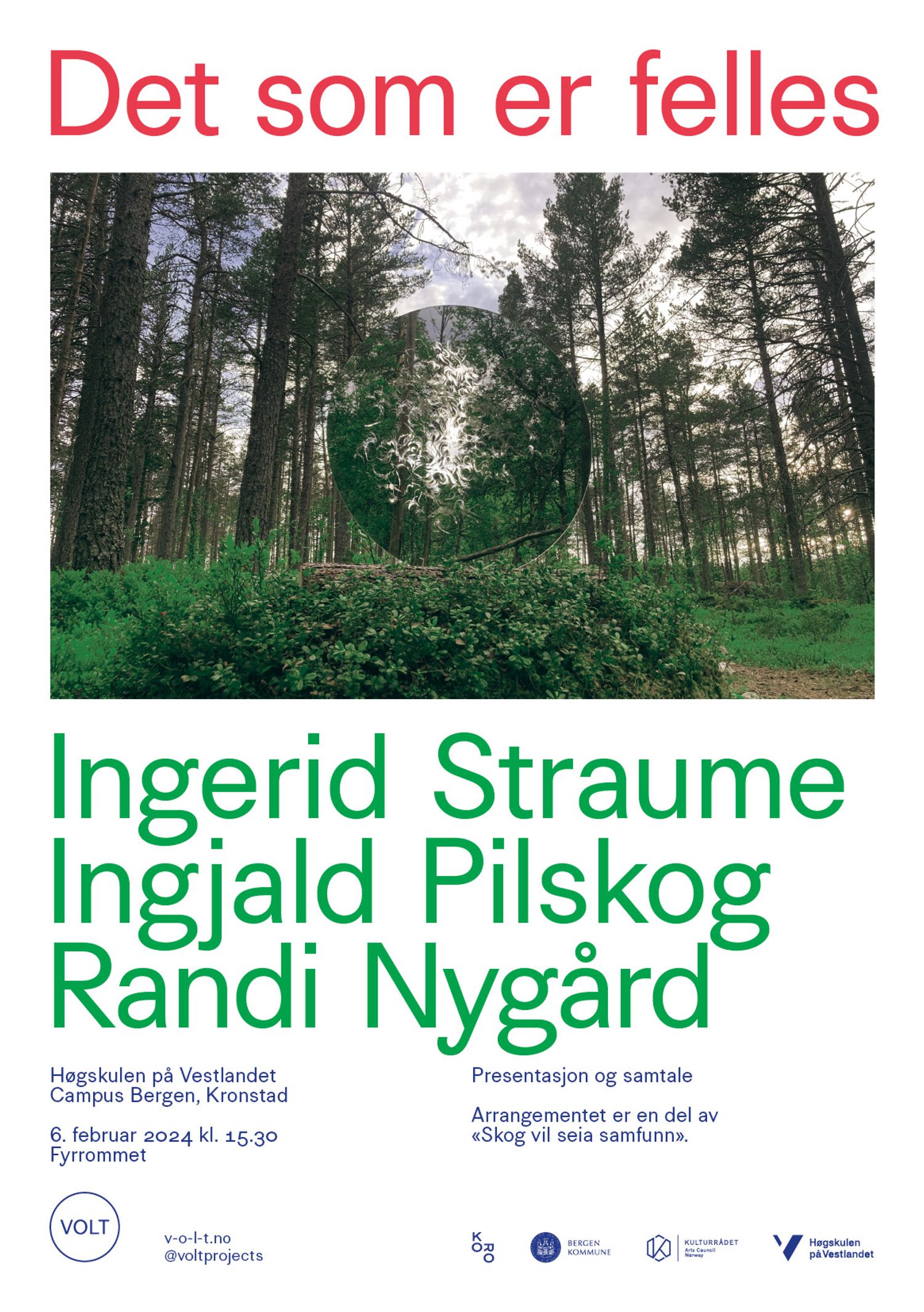What makes a society a society? And why has it become so difficult for people in the West to think in societal terms, often struggling to relate to ideas and practices that exist and have meaning on a collective level? The prevailing notion is that the individual represents freedom, while community somehow restrains us. In this presentation, Ingerid Straume will question this concept from an environmental perspective and address the need to organise our society in a more sustainable way.
The presentation will be followed by a conversation between Ingerid Straume, Ingjald Pilskog and artist Randi Nygård.
The event is part of Skog vil seia samfunn (Forest Means Society), Nygård’s long-term project for Volt, which will be installed in the Kronstad area of Bergen near the Western Norway University of Applied Sciences. Skog vil seia samfunn is inspired by a method developed by Japanese ecologist and botanist Akira Miyawa, whereby various native tree species are planted close together to create mini forests in urban spaces. These forests then purify the air, reduce noise, bind carbon and attract numerous animals and insects. Also known as ‘pocket forests’, they serve as micro-habitats that are considered to be particularly rich in species.
Drawing inspiration from the variety of lifeforms these ‘pocket forests’ contain, Nygård will create a series of small sculptures that highlight how animals and plants help to shape public spaces, in cities as well as in the countryside. During the course of Skog vil seia samfunn, a number of public events will be held relating to themes from the project, featuring people from a number of different fields, including art, biology, cultural science and philosophy.



